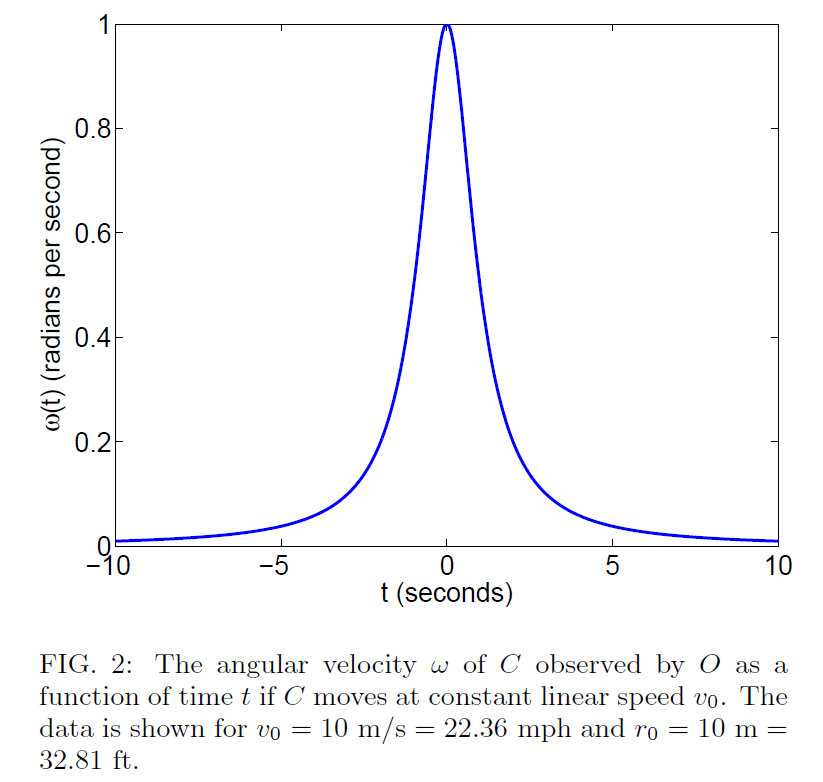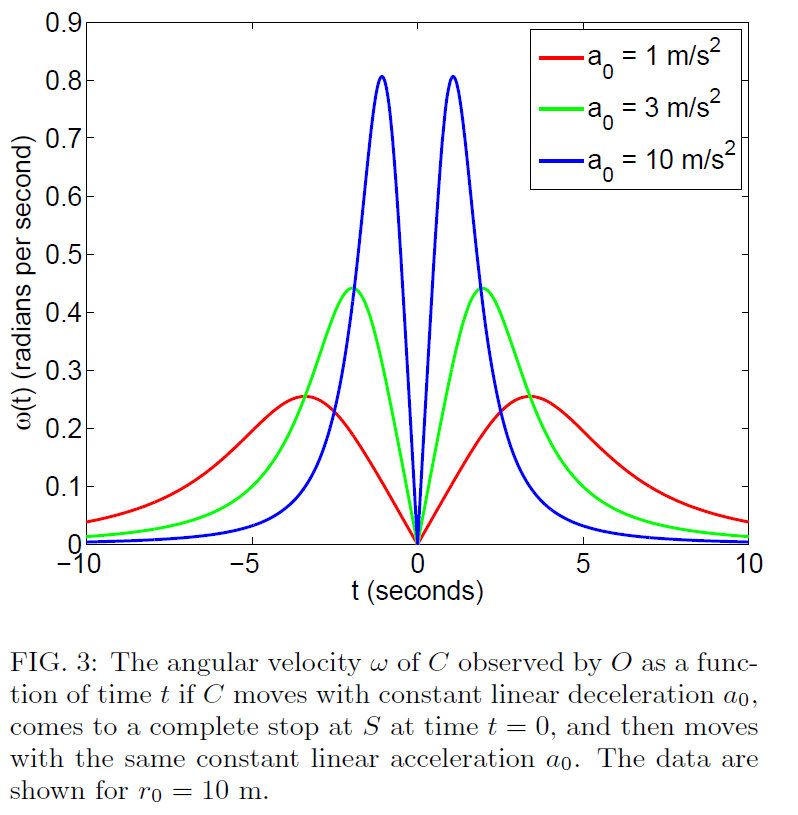April 10, 2012
Here's a practical application for your physics education: using math to successfully beat a traffic ticket in court. Dmitri Krioukov, a physicist based at the University of California San Diego, did just that to avoid paying a fee for (purportedly) running a stop sign.
Krioukov not only proved his innocence, but he also posted
a paper detailing his argument online on the arXiv server. The succinct abstract for his paper certainly distinguishes itself from other research papers:
"A way to fight your traffic tickets. The paper was awarded a special prize of $400 that the author did not have to pay to the state of California."
After thinking Krioukov ran through a stop sign, a nearby police officer pulled him over and issued him a citation. According to Krioukov's paper, however, three physical phenomena combined at just the right time and misled the officer.
When Krioukov drove toward the stop sign the police officer was approximating Krioukov's angular velocity instead of his linear velocity. This happens when we try to estimate the speed of a passing object, and the effect is more pronounced for faster objects.
Trains, for instance, appear to be moving very slowly when they are far away, but they speed past when they finally reach us. Despite these two different observations at different distances, the train maintains a roughly constant velocity throughout its trip.
In Krioukov's case, the police cruiser was situated about 100 feet away from a perpendicular intersection with a stop sign. Consequently, a car approaching the intersection with constant linear velocity will rapidly increase in angular velocity from the police officer's perspective.
Similarly, if a car approaches the stop sign with constant velocity but brakes quickly before reaching the sign, the angular velocity will rapidly increase before stopping momentarily. To illustrate this point, Krioukov created two graphs: one for the case of constant linear velocity through a stop sign (illegal) and another for a quick stop at the sign before accelerating back up to speed (legal).


If you look at the graph on the right, you'll notice three lines with different colors, and each line corresponds to a different deceleration at the stop sign. The blue line with the biggest spikes represents a 10 m/s^2 deceleration -- about the highest deceleration for the kind of car he was driving.
This line mimics what actually happened best according to Krioukov because he had a terrible cold that day, and one sneaky sneeze caused him to slam on the brakes hard as he approached the stop sign.
The crux of Krioukov's argument is that this rapid, legal deceleration can appear very similar to the case descriped in the graph on the left. But the left graph actually represents a car cruising through the stop sign at a constant velocity exceeding 20 miles per hour. So surely an officer would still be able to tell the difference, right?
Not when another car partially obstructs his view, according to Krioukov. When another car partially blocked the officer's view of Krioukov's car momentarily, the officer could have missed the brief yet crucial timing of his stop. At least, that's Krioukov's version of the case.
Either way, his argument appeared to work: "The judge was convinced, and the officer was convinced as well," Krioukov told PhysicsCentral.
This physical description swayed the judge, or maybe she was simply impressed by the sheer dedication Krioukov put into avoiding this ticket.
You can peruse the paper here if you want to devise your own plan to get out of traffic tickets. Leniency in court, however, is not nearly as reliable as mathematical proofs.
Now, Krioukov has a challenge for our readers: "I want to ask the readership to please find the flaw in the argument."




 Reply With Quote
Reply With Quote


Bookmarks